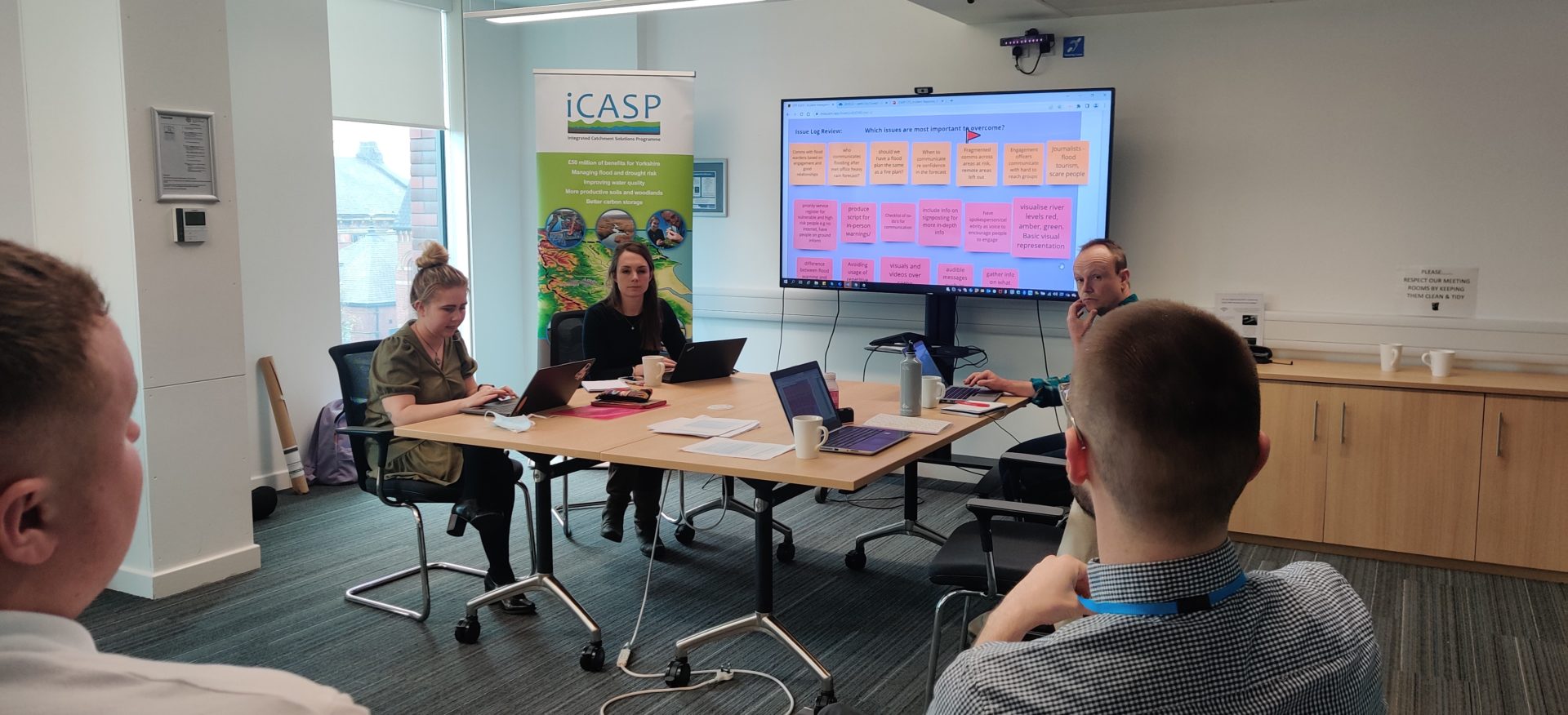We are delighted to be getting really positive feedback on our flood engagement exercises and bookings from national, regional and local teams.
Our first face-to-face exercise was held with incident management staff who work with Leeds City Council.
This is what Carl Fisher and Ian Hope took away from the day – we captured their thoughts on video
Some of the other positive comments we have receieved are:-
“The scenarios really encouraged me to remember to think about flood events from different perspectives.”
“Really enjoyed the session and how engaging it was. Definitely worth it! I thought the discussions around it were great and the facilitating was done really well.”
“I learnt a lot about the most effective communication and how challenging it can be to get right. I think there are a lot of takeaways for the incident team to put into practice that we possibly haven’t come across or thought as deeply about before. It will definitely help to start those conversations and I’d encourage anyone involved in incidents to participate.”
“I will take away the importance of tailoring engagement to the target demographic but also considering people in the minority/margins, using a consistent, clear approach.”
“The facilitators created a great, inclusive environment. The number of participants was good (not too small or large) and the realistic but fictitious scenario made it easy to relate to, while allowing you to think differently and consider a range of factors.”
The exercise is part of a project we are delivering working with partners to improve communications about flood risk using engagement tools.
Our aim is to support Risk Management Authorities to engage more effectively with their communities, increasing resilience to flood risk and the impact of climate change.
We are delivering the free sessions for groups of flood wardens, teams who work in incident management, community groups and anyone interested in communicating better during flood events.
Bookings have now been extended until the summer and can be made online , so do get in touch if you have a group that would like to take part. It’s fun, interactive and opens your eyes to new challenges.

